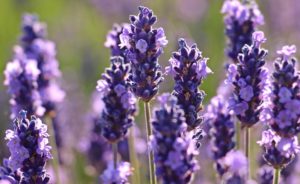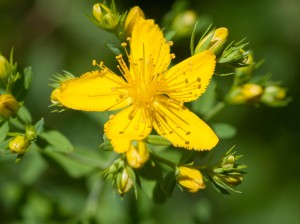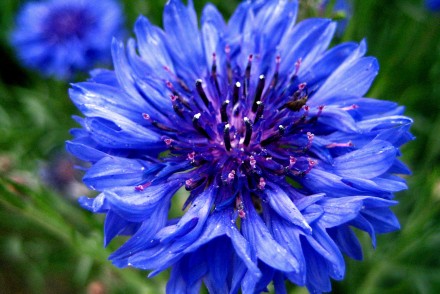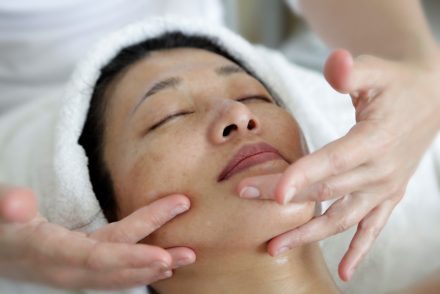Aromatherapy treatments have been proven to be effective in treating depression. Essential oils can help balance, relax and restore the nervous system.
Depression, which literally means ‘a lowering’, occurs when person’s energy becomes depleted, blocked, and pulled down. Wide range of psychological issues and pressures can lead to feelings of depression. Depression is a natural human response to an endless variety of circumstances and states of unresolved suffering, or tension within the psyche. Aromatherapy allows you to work naturally through unresolved pain or trauma.
Depression and Aromatherapy Treatments
Aromatherapy offers a multidimentional approach to the management of conditions associated with the nervous system such as depression, anxiety, stress and insomnia. It involves:
- the pharmacological activity of essential oils
- the therapeutic and nurturing benefits of the massage
- the caring professional relationship between the therapist and the client
- the powerful influence that olfaction has on the nervous system – memory and emotions
Aromatherapy Massage Massage affects both body and mind. Massage therapy can help relax and cope with unpleasant stimuli, pain, anxiety, insomnia, fatigue, and stress, all of which can interrupt the healing process.
The observed effects of the massage treatment includes:
- reduction of anxiety
- improved wellbeing and self-worth
- reduction of pain levels
- reduction of muscle spasm and tension
- improved sleep
- reduction of stress
Aromatherapy massage has calming, energising, or uplifting effect on the nervous system and helps lift the Spirit. Essential oils can help balance, relax and restore the nervous system.
Inhalation Breathing technique partnered with essential oils can bring a relief to stress, anxiety, and depression. In this video you can learn how to reduce and/or prevent those states of mind by breathing deeply and slowly and inhaling the aroma with a chosen oil.
Tea Put half a teaspoon of lavender (dried flowers 1-1.5g), to the warmed teapot and pour into it 200ml of freshly boiled water. Cover the teapot to limit the loss of volatiles of the plant. Leave it for 10-15 minutes, until it brews. Drink it two times during the day and before going to bed.
Lavender bliss To enjoy the calming effect of lavender, use 4 drops of lavender essential oil to 10ml of base oil and massage itinto your arms and temples. Lavender oil can be replaced with any other oil, according to your needs.
Bath Run a deep warm bath at bedtime and add 3 drops of essential oil mixed with carrier oil before getting into the bath. Lower the lights, or use only a candle, and relax. Let the tension sidle off into the water.
Aromatherapy allows you to choose the essential oils according to your individual needs and moods, as depression has many faces.
Agitation: Frankincense, Lavender, Lemon, Geranium, Sweet marjoram, Neroli, Myrrh, Sandalwood, Spikenard.
Emotional instability: Benzoin, Clary sage, Lavender, Sweet orange, Geranium.
Nervous exhaustion: Clary sage, Geranium, Jasmine, Sandalwood.
Fatigue: Basil, Cypress, Peppermint.
Headaches: Lavender, Peppermint, Sweet marjoram, Melissa.
Insomnia: Neroli, Lavender, Sweet marjoram, Petitgrain, Sweet orange, Sandalwood.
Irritability & Frustration: Bergamot, German and Roman Chamomile, Lavender, Yarrow, Everlasting.
Sadness: Bergamot, Grapefruit, Sweet orange, Mandarin, Melissa, Jasmine absolute, Rose.
Apathy: Ginger, Thyme, Juniper berry, Rosemary, Cypress. Pay attention to your own preferences in regards to the oil or oils you would like to use.
Depression and Nutrition
Some food can influence the action of substances (neurotransmitters), which in our brain are responsible for mood and well-being.
Tryptophan, which plays an important role in the proper functioning of our brain – is involved in the production of serotonin, a neurotransmitter responsible for the good mood and reducing symptoms of depression. Occurs among others in bananas, chicken, peas and potatoes.
It is believed that omega-3 fatty acids, which can be found in fish and seafood, can boost proper functioning of the brain. Now, for those being vegan, it is possible to supply your body with necessary Omega 3 oils from plants such as flaxseeds, and hemp among others.
Increase complex carbohydrate intake and reduce sugar intake. Take vitamin B Complex. Its deficiency is associated with anxiety and depression. B vitamins are participating in the synthesis of enzymes responsible for the metabolism of substances regulating mood. Can be found in in peas, lentils, asparagus, leafy vegetables. There is a link between folic acid deficiency and cerebral metabolism – emission responsible for mood. It can be found all products mentioned above. Supply your body with appropriate amount of magnesium and calcium. Its deficiency is linked to nervousness and depression. Avoid alcohol and coffeine. Reduce fat intake as it can contribute to depression through slowing the metabolism.
Herbs
 St John’s wort (Hypericum perforatum) is a traditional herbal remedy used to relieve the symptoms of slightly low mood and mild anxiety. One of its best-known active compounds is hypericin, and some clinical studies show that it alone has a positive effect on depression.
St John’s wort (Hypericum perforatum) is a traditional herbal remedy used to relieve the symptoms of slightly low mood and mild anxiety. One of its best-known active compounds is hypericin, and some clinical studies show that it alone has a positive effect on depression.
Licorice Root (Glycyrrhiza glabra) the root contains glycyrrhizin, which stimulates the adrenal glands to produce hydrocortisone in the body. Interestingly, adrenal gland dysfunction has been linked to depression and related disorders.
Licorice root can be drunk as a tea, up to three cups a day, or taken in capsule form. But be cautious about taking licorice for prolonged periods of time (more than 4 weeks) as it can cause water retention and high blood pressure.
Safety: Always check with your therapist if essential oils and herbs that you want to use are safe and appropriate.
Depression – a journey into the Light
It is important for you to remember that you did not feel like that all your life, even if it feels like that. Depression is often a valuable phase of a person’s life journey. A time to reassess your priorities, directions, relationships, self-image, and personal values. A moment to stop and reflect. Above all, learn to be kind to yourself, and listen to your heart to find out what it needs.
Don’t forget to surround yourself with plants, herbs and flowers as they are a great tool to manage your depression. Personally I think there is just something healing and magical about being with plants and feeling and absorbing the natural energy.
If you live in Wellington, NZ and are looking for Aromatherapy treatment – contact me on(+64) 0210778203 or hello@shamamatherapy.co
References
Battaglia, S. The complete guide to aromatherapy, 2nd ed The International Centre of Holistic Aromatherapy, Brisbane, Australia Readers Digest Association, Inc., 2003
Davies S., Stewart A. Nutritional medicine. Pan Books, Great Britain, 1987
Farrow J. Massage therapy and Nursing Care. Nursing Standard, 1990; 7(17): 26-28
Price L., Price S. Aromatherapy for health professionals , 2nd edn, Churchill Livingstone, UK, 1999
Mojay G. Aromatherapy for healing the Spirit Hodder & Stoughton, United Kingdom, 1996
Shapiro D. Your body speaks your mind Piaktus Books Ltd UK Maureen, B. 2002
Depression: Soul’s Quest for Depth, Meaning & Wholeness http://www.jungcircle.com/depression.html Waking Times What a Shaman Sees in A Mental Hospital http://www.wakingtimes.com/2014/08/22/shaman-sees-mental-hospital/ Excerpted from: The Natural Medicine Guide to Schizophrenia, or The Natural Medicine Guide to Bi-polar Disorder, pages 178-189, Stephanie Marohn (featuring Malidoma Patrice Somé).




